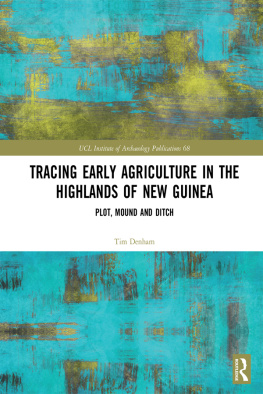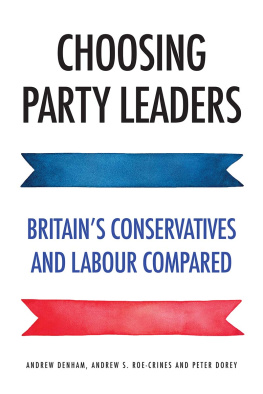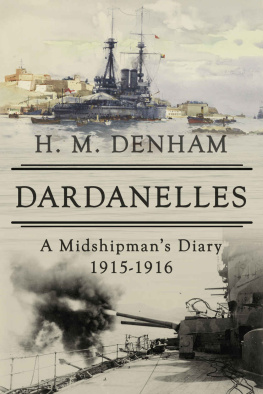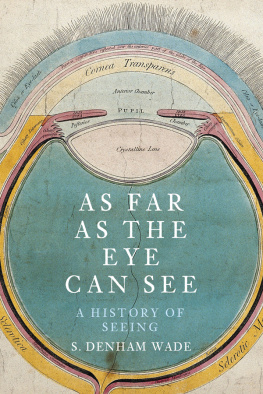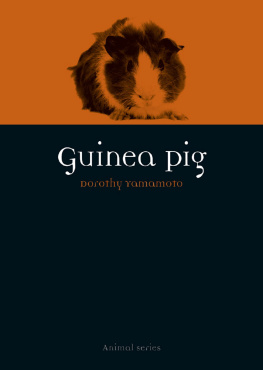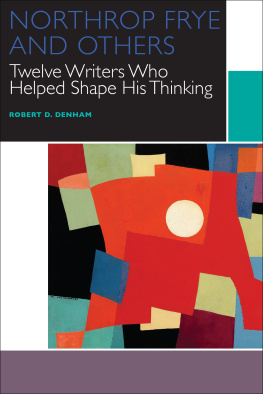Tracing Early Agriculture in the Highlands of New Guinea
In this book, historical narratives chart how people created forms of agriculture in the highlands of New Guinea and how these practices were transformed through time. The intention is twofold: to clearly establish New Guinea as a region of early agricultural development and plant domestication; and, to develop a contingent, practice-based interpretation of early agriculture that has broader application to other regions of the world.
The multidisciplinary record from the highlands has the potential to challenge and change long-held assumptions regarding early agriculture globally, which are usually based on domestication. Early agriculture in the highlands is charted by an exposition of the practices of plant exploitation and cultivation. Practices are ontologically prior because they ultimately produce the phenotypic and genotypic changes in plant species characterised as domestication, as well as the social and environmental transformations associated with agriculture. They are also methodologically prior because they emplace plants in specific historico-geographic contexts.
This book is aimed at a new audience, one that is not necessarily familiar with the geographical and historical nuances of the island of New Guinea. It has relevance to archaeologists studying the transitions from foraging to farming, as well as to researchers and students across of range of disciplines (including agronomists, anthropologists, geneticists, geographers and linguists) working in the Indo-Pacific region.
Tim Denham is Reader/Associate Professor of Archaeology at the Australian National University. He has undertaken fieldwork in Papua New Guinea, mostly in the highland interior, since 1990. His primary research has focussed on plant exploitation and the emergence of agriculture in the highlands during the Holocene. He has also published on the Holocene histories of Island Southeast Asia and northern Australia. Over the last decade, his interests have diversified to include the domestication of vegetatively propagated crops, especially bananas; geoarchaeology and environmental change, mainly in the wet tropics; and the application of new technologies to archaeological questions.

UCL Institute of Archaeology Publications
General Editor: Ruth Whitehouse
Director of the Institute: Sue Hamilton
Founding Series Editor: Peter Ucko
The Institute of Archaeology of University College London is one of the oldest, largest and most prestigious archaeology research facilities in the world. Its extensive publications programme includes the best theory, research, pedagogy and reference materials in archaeology, cultural heritage and cognate disciplines, through publishing exemplary work of scholars worldwide. Through its publications, the Institute brings together key areas of theoretical and substantive knowledge, improves archaeological and heritage practice and brings archaeological findings to the general public, researchers and practitioners. It also publishes staff research projects, site and survey reports, ethnographic work and conference proceedings. The publications programme, formerly developed in-house or in conjunction firstly with UCL Press and then with Left Coast Press, is now produced in partnership with Routledge, a part of the Taylor & Francis group. Details of the Institutes 80-plus publications can be found at www.routledge.com/UCL-Institute-of-Archaeology-Publications/book-series/UCL.
The Institutes publications programme consists of two series: a General Series, reflecting the Institutes wide-ranging archaeological research; and a Critical Cultural Heritage Series, promoting research that differs radically from the existing canon of cultural heritage texts.
This volume is part of the Institutes General Series.
Archaeology of African Plant Use ed. Chris J Stevens, Sam Nixon, Mary Anne Murray, Dorian Q Fuller, 2014.
Mediterranean Voyages by Helen Dawson, 2014
Wrapping and Unwrapping Material Culture ed. Susanna Harris and Laurence Douny, 2014.
Plain Pottery Traditions of the Eastern Mediterranean and Near East ed. Claudia Glatz, 2015
Ethnic Ambiguity and the African Past ed. Francois G Richard and Kevin C MacDonald, 2015
Reanimating Industrial Spaces ed. Hilary Orange, 2015
Living in a Landscape of Scarcity by Laurence Douny, 2015

UCL Institute of Archaeology can be accessed on line at www.ucl.ac.uk/archaeology.
Tracing Early Agriculture in the Highlands of New Guinea
Plot, Mound and Ditch
Tim Denham
First published 2018
by Routledge
2 Park Square, Milton Park, Abingdon, Oxon OX14 4RN
and by Routledge
711 Third Avenue, New York, NY 10017
Routledge is an imprint of the Taylor & Francis Group, an informa business
2018 Tim Denham
The right of Tim Denham to be identified as author of this work has been asserted by him in accordance with sections 77 and 78 of the Copyright, Designs and Patents Act 1988.
All rights reserved. No part of this book may be reprinted or reproduced or utilised in any form or by any electronic, mechanical, or other means, now known or hereafter invented, including photocopying and recording, or in any information storage or retrieval system, without permission in writing from the publishers.
Trademark notice: Product or corporate names may be trademarks or registered trademarks, and are used only for identification and explanation without intent to infringe.
British Library Cataloguing-in-Publication Data
A catalogue record for this book is available from the British Library
Library of Congress Cataloging-in-Publication Data
Names: Denham, Tim, author.
Title: Tracing early agriculture in the highlands of New Guinea : plot, mound and ditch / Tim Denham.
Description: Milton Park, Abingdon, Oxon ; New York, NY : Routledge, 2018. | Series: UCL Institute of Archaeology Publications | Includes bibliographical references and index.
Identifiers: LCCN 2017060352 (print) | LCCN 2018010497 (ebook) | ISBN 9781351115308 (Master) | ISBN 9781351115285 (ePub) | ISBN 9781351115292 ( Web PDF) | ISBN 9781351115278 (Mobi/Kindle) | ISBN 9780815361817 (hardback : alk. paper)
Subjects: LCSH: AgricultureNew GuineaHistory.
Classification: LCC S479.3.N43 (ebook) | LCC S479.3.N43 D46 2018 (print) | DDC 338.10995dc23
LC record available at https://lccn.loc.gov/2017060352
ISBN: 978-0-8153-6181-7 (hbk)
ISBN: 978-1-35-111530-8 (ebk)
Typeset in Bembo
by Apex CoVantage, LLC
To mum, who cultivated my mind
To dad, who fostered my interest in farming
Contents
This book is aimed at a new audience, one that is not familiar with the geographical and historical nuances of the New Guinea region, especially the mountainous interior. It is intended to move the multidisciplinary record derived from the highlands to a more central position in global debates on early agriculture, as well as to challenge and change long-held assumptions. In this book, I build upon and extend previous publications on early agriculture in the highlands of Papua New Guinea. Unlike most previous work, which is heavily focussed on lines of evidence, this book presents new concepts and methods developed to investigate early agriculture in the highlands.
 UCL Institute of Archaeology Publications
UCL Institute of Archaeology Publications UCL Institute of Archaeology can be accessed on line at www.ucl.ac.uk/archaeology.
UCL Institute of Archaeology can be accessed on line at www.ucl.ac.uk/archaeology.

